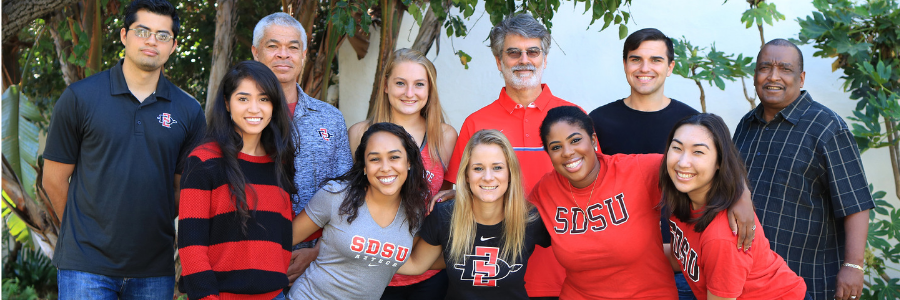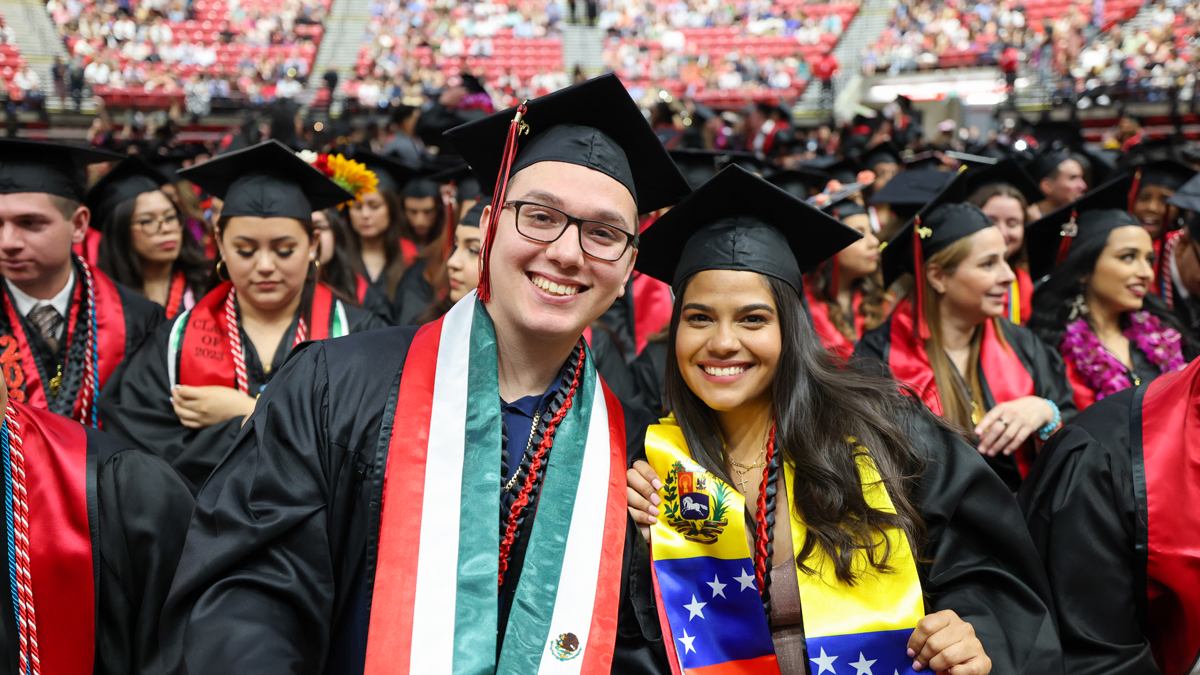Project Rebound Students Thrive in SDSU Program

Every college student shares similar worries: Will I get into the college of my choice? Will I fit in? Can I manage college, work, living on my own, etc? The transition to college – whether as a first-time freshman or a transfer student – is intimidating for students. Universities build bridges to assist students in the acclimation process and to assist in providing for student success –social events, clubs, study groups, commuter support, and major-specific programs where students find other students like them and build a support network.
Imagine being a non-standard student: One who has taken correspondence courses, has multiple transcripts from a variety of educational institutions, lacks basic computer skills, is older than the average college student, more than likely has been victimized, is unemployed and living in a low-income situation and is food insecure (and may even be homeless), and has a felony record.
About Project Rebound
Project Rebound is an admissions and social support program for students transitioning out of prison and into the academic environment. Established at SDSU in 2016, the program has helped hundreds of individuals earn bachelor’s and master’s degrees since its inception in 1967 at San Francisco State University. Each of the eight universities in the California State University system currently running the initiative develops a campus-based re-entry program that best serves its constituency. Most programs across the state are primarily serving men; the SDSU cohort is primarily female.
“There is a little voice in each one that says ‘they don’t want me there’ and ‘I don’t belong there,’” said faculty administrator Dr. Alan Mobley. “Project Rebound supports students in doing remarkable things and sees them with respect and values the contributions they make to campus.”
Student Success
In the two years since it was established, Project Rebound at SDSU has graduated three master’s students all of whom have gone on to be successfully employed and one who has also entered a Ph.D. program. One undergraduate student has completed her education at SDSU and another 8 to 10 are expected to graduate in May of 2019. There are currently twelve students in the second year cohort, and another twelve started in fall 2018.
Like all programs at SDSU, the goals of Project Rebound are focused on student success. Administered by faculty and a part-time staff person, Project Rebound relies upon existing program participants and alumni to provide support to the students. Together, they navigate social experiences, employment opportunities, living situations, mental and physical health practices, study groups, college and work appropriate clothing, transportation, technology, and other issues that may be a bump-in-the-road for traditional students, but are game changers for Project Rebound students.
One master’s candidate in communication wrote her thesis on incarceration as a result of her experience with Project Rebound. Her grades and thesis merited a full scholarship to earn her Ph.D. and continue her research.
“Prior to Project Rebound…my research would have been opposite of what I am doing now (incarceration), because I would have been afraid of being found out. When I found this group of people (and support), I had courage to share my story and disclose my background,” she said.
Long-Term Impact
And though the road may be bumpier for the formerly incarcerated student, it is a road worth traveling. The average age of current Project Rebound students is early 40s, and many are on the Dean’s List with an average GPA of 3.77.
Currently incarcerated women regularly connect with Project Rebound faculty and staff to seek application support well in advance of their parole. One such candidate is maintaining a 3.9 GPA and anticipates receiving her Associate in Arts degree by the end of the calendar year while simultaneously seeking a drug and alcohol counseling certificate.
Corrections professionals regularly refer outstanding candidates to SDSU. In fact, faculty in the schools of public affairs and communication at SDSU are working collaboratively with leadership at Donovan State Prison to develop a bachelor’s degree program.
“Justice involved women know they can succeed here (at SDSU),” said Mobley. “Successful women who have participated in Project Rebound share their stories, and our success is based upon those relationships.”
The content within this article has been edited by Lizbeth Persons.

